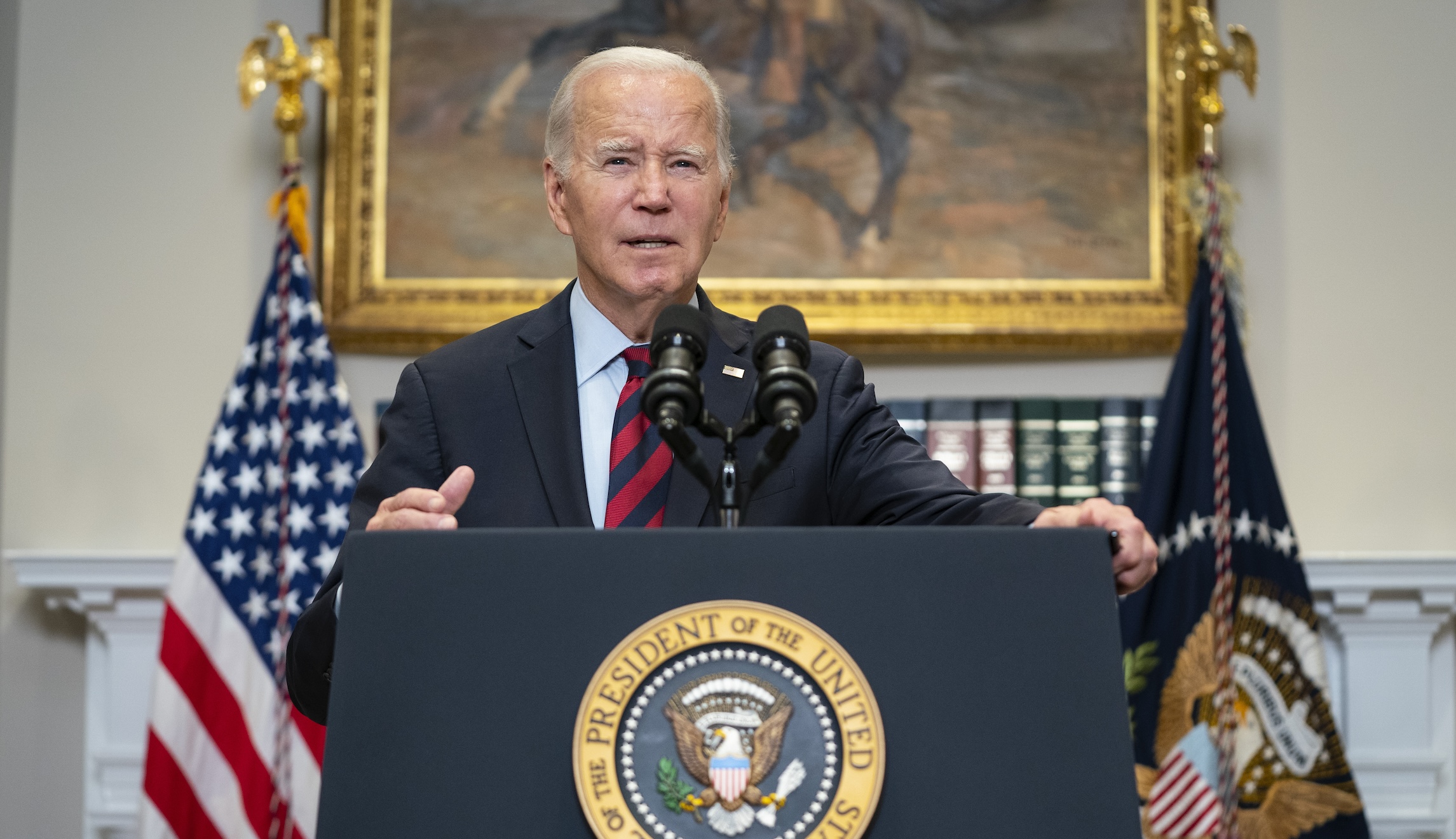

House leadership’s move to change the expiration of a bill that would renew Section 702 of the Foreign Intelligence Surveillance Act appeased some Republican detractors while leaving the Biden administration deeply dissatisfied.
The House will vote on Friday on the new bill, which would reauthorize the powerful government spy program for two years instead of five years. Meanwhile, some in the Biden administration are “secretly freaking out” about the change despite the White House’s outward support for the bill, according to a source familiar with the administration’s thinking.
The source said the condensed renewal period would significantly strain the intelligence community as it works to conform to the dozens of reforms built into the new bill, all while facing the possibility that its most powerful national security tools will expire or be dramatically changed again in two years.
This causes “serious burdens that will shrink agency resources to the brink,” and it creates “significant uncertainty for the IC on the most important intel tool, undermining its effectiveness,” the source said.
The Washington Examiner reached out to a White House spokesman for comment.
The change from five years to two years has also garnered mixed reviews in the House.
Rep. Brian Fitzpatrick (R-PA), a former FBI agent and member of the House Intelligence Committee, said that pushing up the bill’s sunset date is “a mistake.”
“This is a critical national security tool. We can’t be playing games with it,” Fitzpatrick said. “I’m the only FBI agent in Congress who’s actually used it, and it saves a lot of lives every day that people don’t know about.”
Section 702 allows the intelligence community to surveil foreigners’ electronic communications, but it has caused controversy because people in the United States who are communicating with those overseas can have their private communications swept up in the collected data.
The Intelligence Committee drafted most of the Section 702 reauthorization bill, and a person close to the committee agreed with Fitzpatrick that a longer reauthorization period would be ideal.
“Five years is preferable,” the person said, but added that “the two-year reauthorization with the reforms in the underlying bill is an important step to address abuses while keeping Americans safe.”
The disputes over the bill are largely a result of the FBI abusing its access to Section 702 in recent years, generating severe distrust among privacy hawks. FBI agents were found by the FISA Court to have searched sensitive data collected through Section 702 for the private information of hundreds of thousands of U.S. citizens, such as those who participated in the George Floyd protests and the Jan. 6 Capitol breach. The bureau has been adamant, and the FISA Court has agreed, that internal reforms the FBI implemented have since addressed those improprieties.
The Intelligence Committee has touted that its new bill places greater restrictions on the FBI, such as enhanced criminal penalties for abusing Section 702 and reducing agents’ access to it, that will address privacy worries.
The House Judiciary Committee has been, on a fully bipartisan basis, advocating its own bill with many similar reforms but also with the key addition of a provision that FBI agents obtain warrants before searching their database for U.S. citizens’ information. The Intelligence Committee and the FBI have claimed the warrant requirement would render Section 702 useless and threaten national security.
Because of these divisions and House leadership’s struggle to overcome them, some hard-line Republicans initially blocked the reauthorization bill from advancing this week. However, these defectors have shown signs they will let up, in part because of the two-year reauthorization change.
“The two-year time frame is a much better landing spot because it gives us two years to see, ‘Is any of this working?’ Rather than kicking it out five years,” Rep. Chip Roy (R-TX) said. “They say these reforms are going to work? Well, I guess we’ll find out.”
CLICK HERE TO READ MORE FROM THE WASHINGTON EXAMINER
Rep. Bob Good (R-VA), chairman of the House Freedom Caucus, which has been driving much of the Republican opposition to the bill, said he is in favor of the two-year change because he hoped Republicans would have more control of government at the time of Section 702’s next expiration.
“We’re hopeful that we will have a Republican Senate, Republican House, and a Republican in the White House,” Good said.
Cami Mondeaux and Rachel Schilke contributed to this report.




